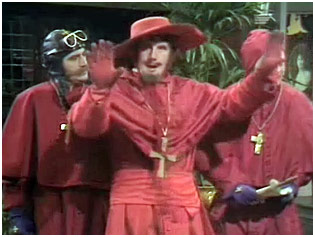warpus
Sommerswerd asked me to change this
Ok, we all know that past events and cultures shape today's and tomorrow's, so what are some examples where we have a false image of the past?
So far i've got how some seem to glorify older music because everything was great, even though if you ask them they can probably only name 20 bands from that era, even though there has always been a 10:1 bad to good ratio of music. is it because we wipe out the bad and put the good on a pedestal when it comes to some things in history and in the present we only see the bad?
anyways, take my post and run.
How about that made up fact about Columbus wanting to prove that the world was round to the Spanish Queen?
That's still taught to kids in some places, as far as I know, and it's not true at all - it was well known during Columbus' time that the Earth is round.




